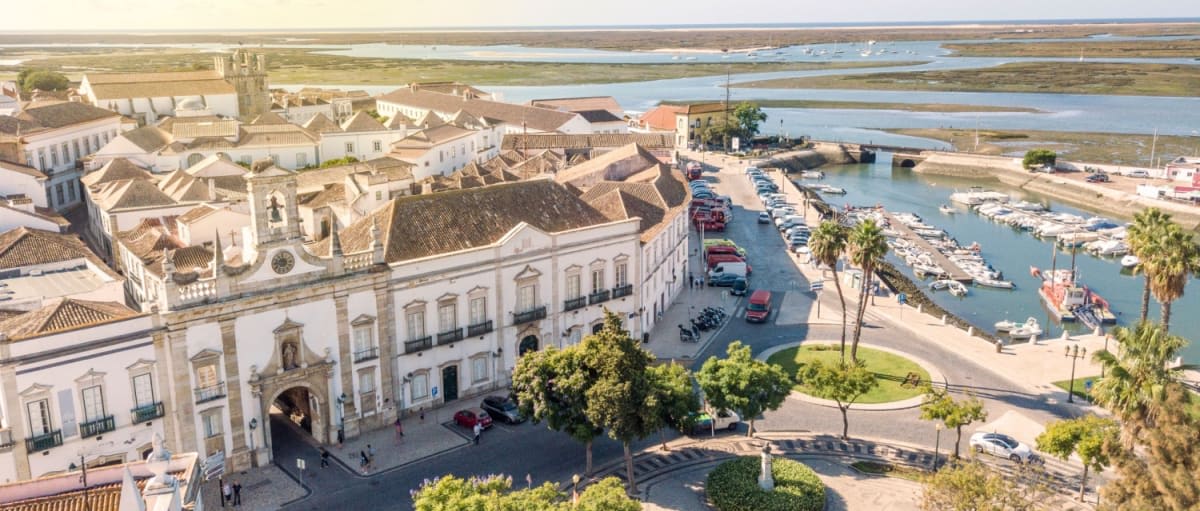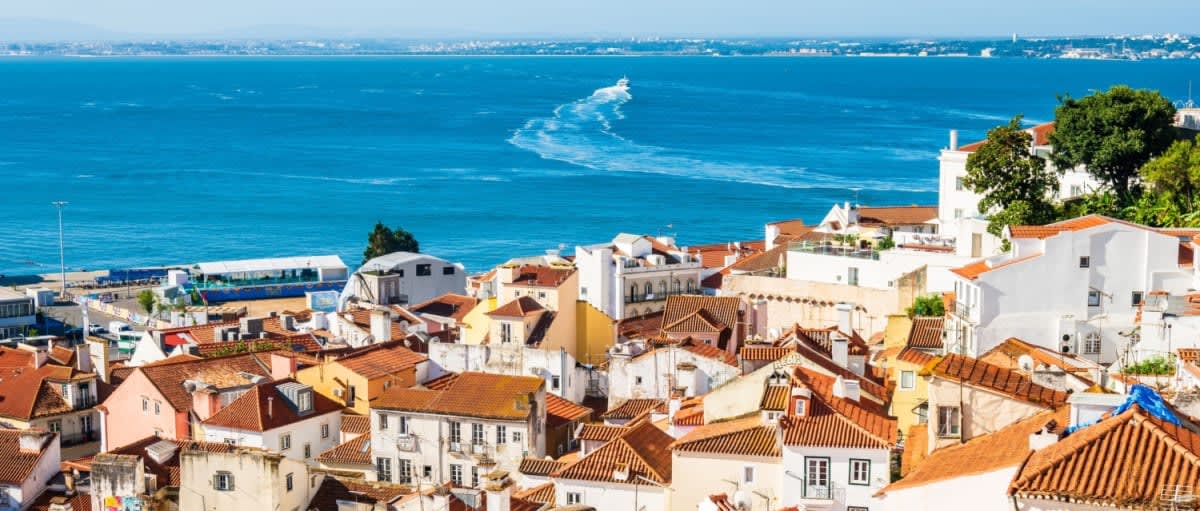If you’ve signed the promissory contract and paid your deposit, you might think your Portuguese property purchase is almost over. But the final stages are just as important. Miss a step or misjudge the timing and you risk delay, legal issues or unexpected financial loss. Buy, with preparation, completing your property purchase in Portugal need not be stressful.
Let’s walk through what happens after the Contrato de Promessa de Compra e Venda has been signed, right through to receiving the keys and registering your purchase. You’ll learn how to finalise the contract, complete the legal procedure and protect your budget against exchange rate movements. Whether you’re relocating or buying a holiday home, this is your roadmap for a safe and successful purchase.
Download the Portugal Buying Guide
Contents

What happens after the promissory contract
Once the seller has accepted your offer, both parties sign the Contrato de Promessa de Compra e Venda (promissory contract). This agreement formally secures your intent to buy and includes key information about the property, its price and conditions of sale. You’ll also transfer a deposit, typically 10%, which may be forfeited if you withdraw from the deal without a valid reason.
From this point, it generally takes two to three months to reach completion. Your lawyer will use this time to carry out due diligence. This involves confirming ownership, ensuring there are no debts or claims on the property and checking the land registry. If buying in a condominium, your lawyer will also check the building’s financial status and any shared obligations.
During this period, you must also complete some practical tasks. These include securing home insurance, arranging for utilities to be transferred or connected, and ensuring paperwork such as your Portuguese tax number (NIF) is in place. It’s also helpful to open a Portuguese bank account well before completion. Your estate agent can help arrange these tasks, but ultimately the responsibility lies with you or your legal representative. We can help if you need to know how to find an estate agent in Portugal.
For more detail on where to purchase and what’s available, claim your free copy of our Portugal buying guide:
Download the Portugal Buying Guide
Finalising the purchase contract
The final step in buying a property in Portugal is signing the Escritura Pública de Compra e Venda (deed of sale). This is completed in person at a notary’s office. Both buyer and seller need to be present, though either party can be represented by a lawyer through a formal power of attorney. It’s important to learn exactly what overseas buyers need to know about power of attorney. Let your solicitor know as early as possible if you won’t be in Portugal at the time of signing, as arranging a power of attorney from abroad can take several weeks.
Under Portuguese law, the notary (or notário) is an impartial public official who ensures the transaction is legally valid. They read out the contract to both parties and confirm everyone understands its content and implications. If you don’t speak Portuguese, a certified translator must be present and go through the entire contents of the contract with you beforehand or on the day.
Once all parties and the notary have signed the Escritura, ownership is legally transferred. At this point, you’ll pay the property transfer tax known as IMT (Imposto Municipal sobre Transmissões), as well as Notary and registration fees. The property then officially becomes yours, subject to final registration with the authorities.
Settling your final payment
The remaining balance of the purchase price is normally paid on completion day. This is usually done via a bank transfer or a banker’s draft drawn from your Portuguese bank account. Sellers often request assured payment methods, so it’s best to coordinate with your solicitor and bank early to ensure no delays.
You should also transfer enough funds to cover extra costs on the day, including IMT, notary fees and registration charges. IMT varies depending on property value, location and whether the property will be a main or second residence. As a general guide, rates range from 0% to 8%. Your solicitor will provide an estimate tailored to your circumstances.
If you’ve used a mortgage, your lender will release the funds directly to the seller or their representative during the signing. Make sure your banking arrangements are agreed a few weeks before completion so there are no last-minute issues.
Registering property ownership
Although the signing of the Escritura marks legal change of ownership, your solicitor must also register the property in your name. This is done at the Conservatória do Registo Predial (Land Registry Office) and is a crucial last step in cementing your legal rights.
Many buyers mistakenly believe this happens automatically, but in practice it is your solicitor’s role to submit the documents and ensure all records are updated. This includes the land registry and the Caderneta Predial (local property tax record held by the tax office). Timely registration protects your rights to the property and is essential for later tasks such as paying municipal property tax (IMI), applying for residence or making inheritance arrangements.
Speaking of inheritance, buying a home in Portugal also changes your estate planning. Portuguese inheritance law may differ from your home country’s rules, especially regarding forced heirship. It may be worth setting up a Portuguese will to clarify your wishes, particularly if you want UK legal principles to apply under the EU succession regulation.
Protecting your finances from exchange rate risk
If your funds are held in a foreign currency such as pounds or dollars, your final bill in euros can easily shift by thousands due to currency volatility. Even small variations in the exchange rate between signing the promissory contract and completion day can harm your budget.
To avoid this, many overseas property buyers use a forward contract with a currency specialist. This lets you lock in a favourable exchange rate up to 12 months in advance – perfect if you’ve agreed a price in euros but won’t pay the full amount for some time. A forward contract removes uncertainty and ensures you know exactly how much you need in your local currency when the time comes to pay.
Other helpful tools include rate alerts, which notify you when the euro exchange reaches your target rate, or market orders that transfer your currency automatically once the market hits a predefined level. Unlike high street banks, foreign exchange specialists often give access to better rates and lower fees for large transfers. Their teams also provide personal guidance to tailor your payment strategy to your needs.
We recommend speaking to a vetted currency expert, such as Smart Currency Exchange, early in your property journey. That way, you can monitor exchange rates and start planning your payment strategy well in advance of completion. This is one of the simplest ways to stay within your budget and avoid unwelcome surprises. Book a call with Smart Currency Exchange today to learn more.
Start your journey with expert support
Finalising a property purchase in Portugal involves more than signing on the dotted line. With the right preparation, legal advice and currency planning, you can avoid the common pitfalls and settle into your new home with confidence. At Your Overseas Home, our experts are here to help every step of the way – from putting together a buying strategy to connecting you with trusted professionals.
Book a free consultation to speak with one of our property specialists for even more insight into the process.
Finalising your purchase is a major milestone – but it all starts with choosing where to buy property in Portugal. Our regional guide can help you weigh up different locations based on lifestyle, value and long-term plans. If you’re still navigating the process, our full explainer on how to buy property in Portugal covers everything from contracts to currency planning to help you complete with confidence.
Frequently asked questions
After the promissory contract is signed, your lawyer carries out due diligence, including checking the title, debts, and land registry. You’ll also arrange insurance, utilities, and banking before finalising the sale through the deed of purchase (Escritura).
No, a lawyer can represent you using a power of attorney. This must be set up in advance, ideally several weeks before the Escritura appointment. Your representative must present the signed documents to the notary to complete the transfer.
To protect your budget from currency fluctuations, you can use a forward contract through a currency specialist. This locks in the exchange rate for up to a year and ensures your euro payment amount doesn’t increase due to market changes.









